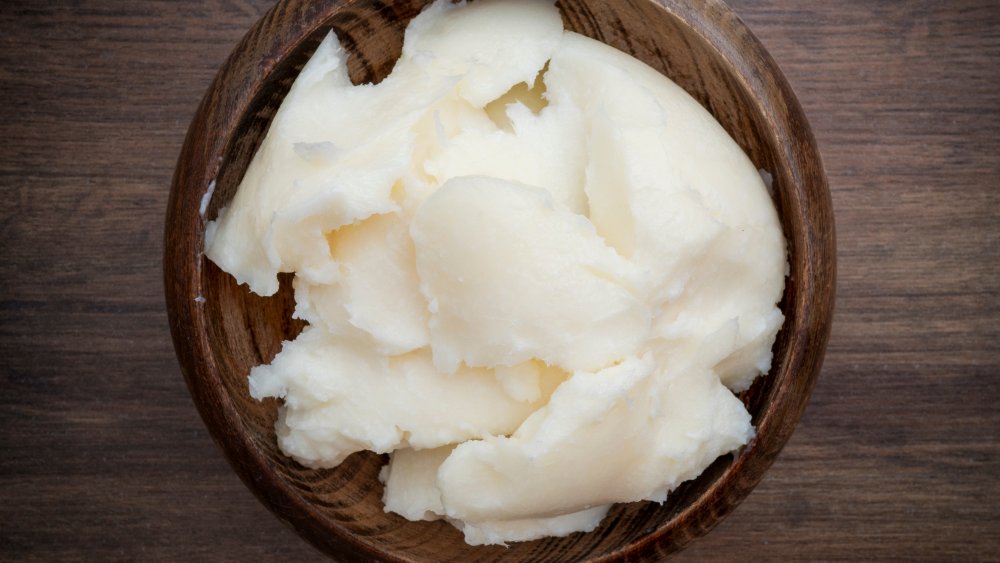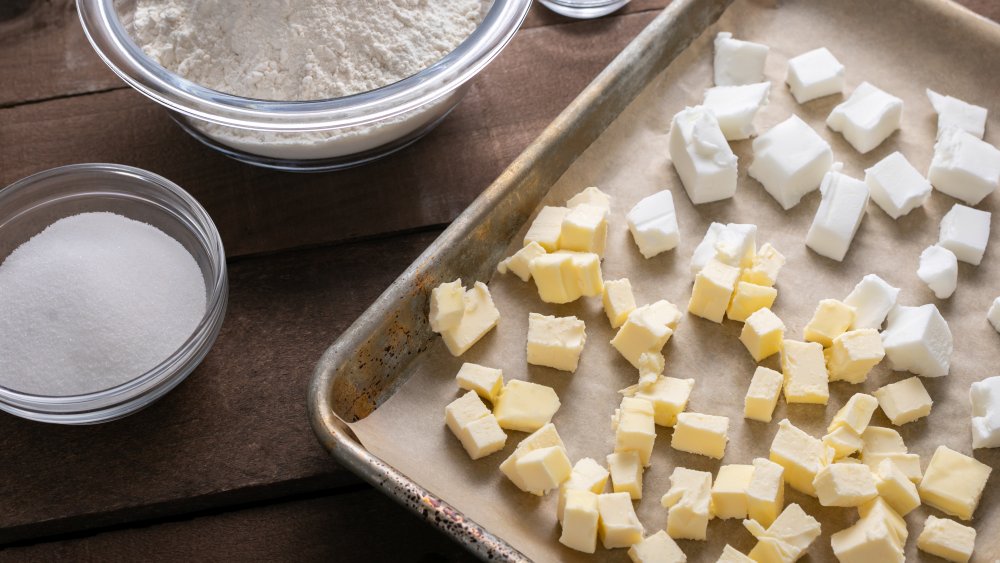Here's What You Can Substitute For Lard
Lard often gets a bad rap. If you find yourself doing the Heisman when a recipe calls for this rendered pig's fat or you can't help but shrink back in sheer horror at the thought of scooping this greasy ingredient out of the jar into a measuring cup, you are probably not alone. Lard is not the cool kid on the block. Even though it is a go-to fat that makes your pie crust crispy and flaky, the dough in your tamales so hearty and tasty, and can be used to baste a chicken and keep it moist, some people just feel the need to avoid lard at all costs. No judgment here. The good news is if you don't want to use it or simply don't have any tucked away for baking, there are plenty of options you can use as a lard substitute that will work just as well.
Per The Spruce Eats, the best substitution for lard is unsalted butter. It will give you a similar texture and overall results; however, it is important to note you will have to alter the amount. Lard is all fat while butter is approximately 80 percent fat. Translation: you will need more butter to compensate. A general guideline is to use 1 and 1/4 cup of butter for every 1 cup of lard. But if you are also trying to lay off the butter, there are other ingredients you can turn to.
Shortening, Ghee, and other oils can be used as lard substitutions
Another choice to use in place of lard is vegetable shortening. That was its original purpose when it was created so you know you will be getting a similar fat content and product. The Spruce Eats offers that you can do a 1-for-1 substitution when using vegetable shortening, but also suggests adding 2 extra tablespoons just to be safe. And if you are frying food, you will want to choose shortening over butter.
Additionally, ghee, a type of clarified butter, can also be used as a substitution for lard. Cook's Illustrated notes that it might be even better than shortening when used in pie crusts and will produce an even better and richer, buttery flavor. But a user at the Stack Exchange cautions, "You will not get the same 'lardy' aroma from butter, ghee, or oil, but if you use other stronger aromas/spices in your recipe it might not really matter."
You can also use some oils as a substitute for lard, but oils are going to change the final product so it may feel a little like a science experiment as you figure out what oil will work best in your recipe. The Spruce Eats recommends a 1-for-1 substitution if you are using either olive oil or coconut oil but also warns that using coconut oil as a lard substitute will add some essence of coconut to the food.

